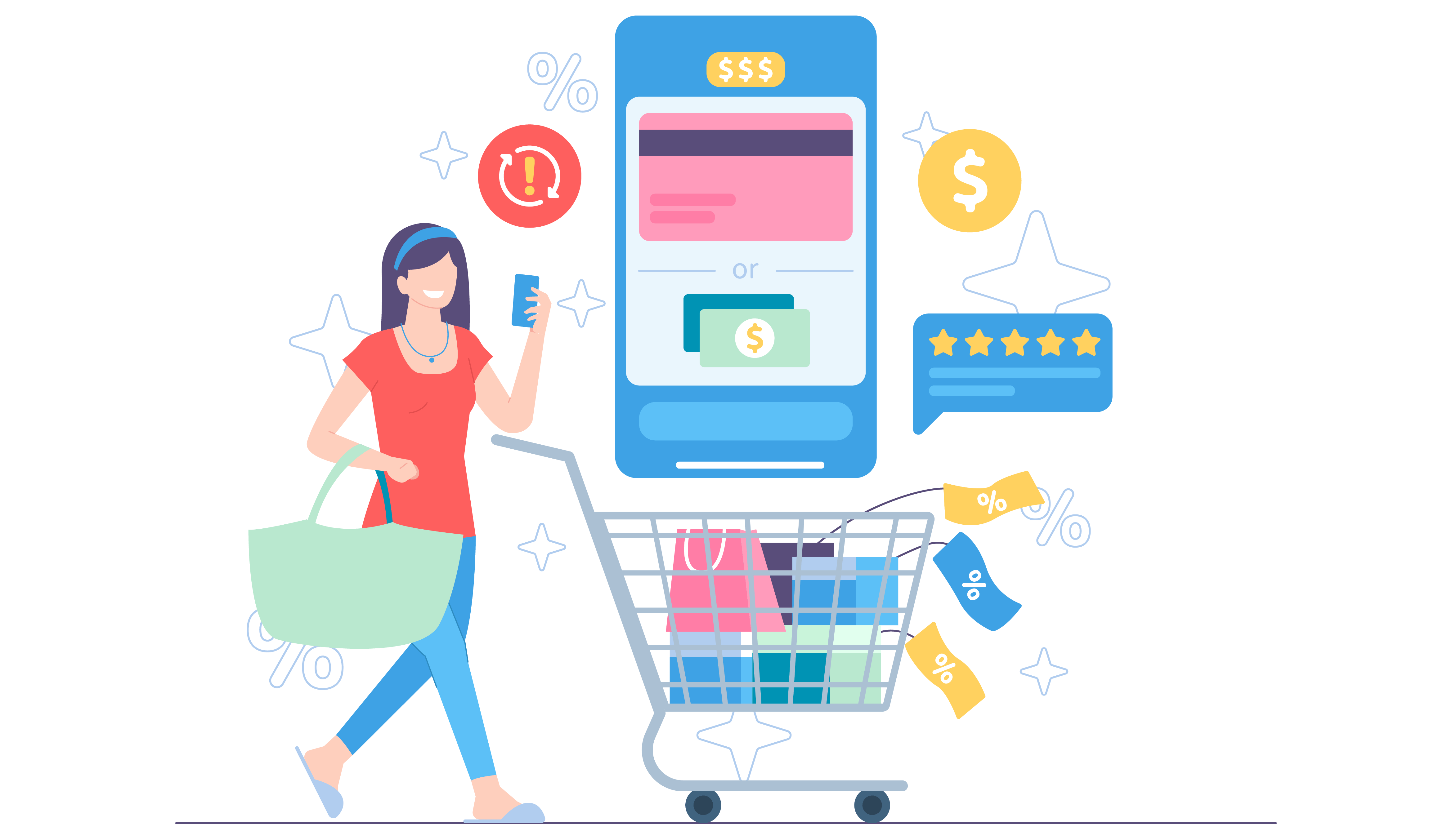In the vast realm of sales, two prominent domains reign supreme: business-to-consumer (B2C) and business-to-business (B2B). While both involve the art of persuasion and closing deals, a closer look reveals that B2C and B2B sales operate in strikingly different landscapes.
Understanding these disparities is crucial for businesses seeking to navigate the complex realm of sales successfully.
This article delves into the nuances that set B2C and B2B sales apart, shedding light on their distinct characteristics, customer dynamics, sales approaches, and key strategies employed to achieve success.
By unraveling the intricacies of B2C and B2B sales, we aim to equip sales professionals, entrepreneurs, and businesses with valuable insights that can shape their sales strategies and drive growth in their respective markets.

What is B2C Sales?
B2C sales, also known as business-to-consumer sales, refers to the process of selling products or services directly to individual consumers. In this type of sales model, businesses target and interact with individual customers as the end-users of their products or services.
In B2C sales, the transactions usually occur on a smaller scale compared to business-to-business (B2B) sales. The focus is on meeting the needs and preferences of individual consumers, often in a retail or e-commerce environment. B2C sales typically involve shorter sales cycles, as the decision-making process is usually faster and involves fewer decision-makers.
Businesses engaged in B2C sales often employ various marketing and advertising strategies to attract and engage consumers. They may use traditional marketing channels such as television, radio, print media, or more modern digital marketing techniques like social media advertising, search engine optimization (SEO), email marketing, and online content creation. The goal is to create awareness, generate interest, and ultimately drive sales directly to individual consumers.
B2C sales can cover a wide range of industries and products, including consumer goods, electronics, apparel, food and beverages, home goods, personal care products, entertainment, and more. The success of B2C sales relies on understanding consumer behavior, building brand loyalty, and providing excellent customer service to foster positive relationships with individual buyers.
What is B2B Sales?
B2B sales, short for business-to-business sales, refers to the process of selling products or services from one business to another. In this sales model, the customers are other businesses or organizations rather than individual consumers.
B2B sales transactions typically involve larger quantities, higher order values, and longer sales cycles compared to B2C sales. The decision-making process in B2B sales often involves multiple stakeholders within the purchasing organization, such as managers, executives, or procurement teams. Sales representatives in B2B settings usually engage in direct sales negotiations and build relationships with key decision-makers.
B2B sales can take various forms, including selling raw materials or components to manufacturers, providing software solutions to enterprises, offering consulting services to businesses, or supplying office equipment to companies. This could also involve helping businesses improve their online presence through a revamped company website. The products or services involved in B2B sales are often tailored to the specific needs and requirements of the purchasing businesses.
B2B vs. B2C Sales
Unlike B2C sales, where marketing efforts primarily target individual consumers, B2B sales rely heavily on relationship-building and networking. B2B sales representatives often engage in face-to-face meetings, attend industry conferences, participate in trade shows, and utilize professional networks to establish connections with potential clients. Building trust and credibility is crucial in B2B sales, as businesses seek reliable partners for long-term collaborations.
The complexity of B2B sales often requires a consultative approach, where sales representatives act as trusted advisors, understanding the unique challenges and goals of their clients and providing tailored solutions. B2B sales cycles may involve multiple stages, including lead generation through outbound sales, qualification, proposal development, negotiations, and contract finalization.
Overall, B2B sales focus on meeting the specific needs of businesses and forging mutually beneficial partnerships, as opposed to selling directly to individual consumers in the B2C sales model.

B2C vs. B2B Sales Strategies
B2C and B2B sales strategies differ significantly due to the distinct nature of their target audiences and sales dynamics. Let’s take a look at some of the best strategies for each.
B2C Sales Strategies
- Emotional Appeal: B2C sales often rely on emotional appeals to connect with individual consumers. Marketing tactics such as storytelling, personalization, and evoking positive emotions can be effective. Brand loyalty and building an emotional connection with the product or service are crucial.
- Impulse Buying: B2C sales often leverage impulse buying behavior. Tactics like limited-time offers, flash sales, discounts, and incentives can create a sense of urgency and prompt immediate purchases.
- Influencer Marketing: Collaborating with influencers who have a strong following and credibility in the target market can be highly effective in B2C sales. Influencers can endorse products, provide reviews, and create engaging content that resonates with their audience.
- Omni-Channel Presence: B2C sales benefit from a strong presence across various channels, including brick-and-mortar stores, e-commerce platforms, social media, and mobile apps. Seamless integration and consistent messaging across these channels are crucial for reaching and engaging consumers. For example, if you’re using an ecommerce platform like Shopify, you can further strengthen your presence and engage your audience by crafting a captivating blog experience with the help of Shopify blog templates. Whether you want to share insightful industry news, showcase product tutorials, or offer exclusive promotions, a well-designed Shopify blog can become a valuable asset in your omnichannel strategy.
B2B Sales Strategies
- Relationship Building: B2B sales often require building long-term relationships with key decision-makers. Personalized interactions, networking events, and face-to-face meetings help establish trust, credibility, and a deeper understanding of clients’ needs.
- Consultative Selling: B2B sales involve understanding complex business challenges and offering tailored solutions. A consultative approach that focuses on in-depth needs analysis, industry expertise, and demonstrating ROI is effective in building trust and delivering value.
- Thought Leadership: Establishing thought leadership through industry-specific content, white papers, webinars, and speaking engagements helps position B2B sellers as experts in their field. Sharing valuable insights and offering solutions to industry challenges can attract potential clients.
- Account-Based Marketing (ABM): ABM focuses on targeting specific high-value accounts and delivering personalized, customized messaging and solutions. This strategy requires a deep understanding of the target company, its goals, and pain points to provide relevant and compelling offerings. A variety of account-based marketing software tools are available to plan and execute ABM campaigns.
- Longer Sales Cycle Management: B2B sales typically involve longer sales cycles and multiple stakeholders. Implementing sales pipeline management, maintaining regular communication, and providing ongoing support throughout the buying process are critical to success.
- Value Proposition and ROI: B2B buyers are often driven by value and ROI. Highlighting cost savings, efficiency improvements, increased revenue, or competitive advantages through data-driven insights and case studies can sway decision-makers.
While these strategies highlight the key differences, it’s important to note that there can be overlaps and adaptability based on specific industries, products, and target markets. Ultimately, understanding the unique needs, motivations, and dynamics of B2C and B2B sales enables sales professionals to tailor their approaches and tactics for optimal results.
Final Thoughts
B2B and B2C selling exhibit notable differences and similarities that sales professionals must understand to excel in their respective domains. B2C sales focus on individual consumers and connecting with customers on a personal level.
On the other hand, B2B sales involve building long-term relationships and emphasizing value propositions and ROI to address complex business needs. However, both B2B and B2C sales benefit from effective communication and continuous learning to adapt to evolving markets.
By recognizing the distinctions and leveraging appropriate strategies, sales agents can thrive in either arena, maximizing their success and driving growth for their businesses. Are you a salesperson considering a move from B2C to B2B selling? Check out this article to help you transition between these two roles.



